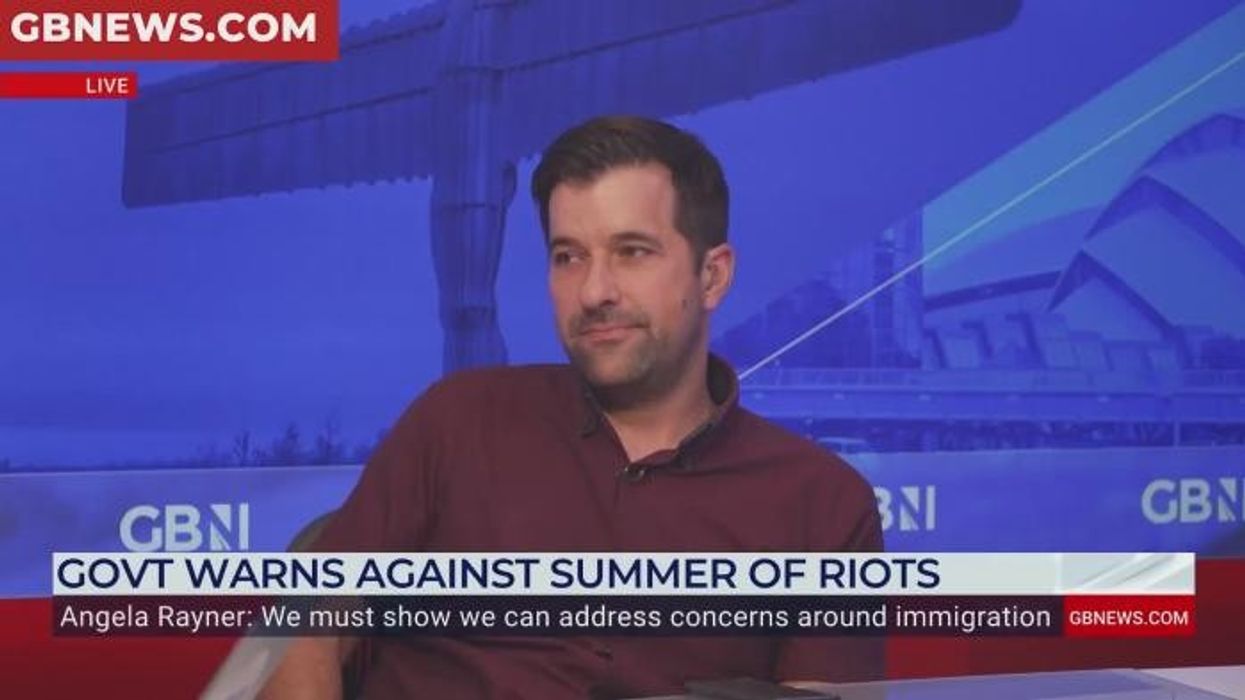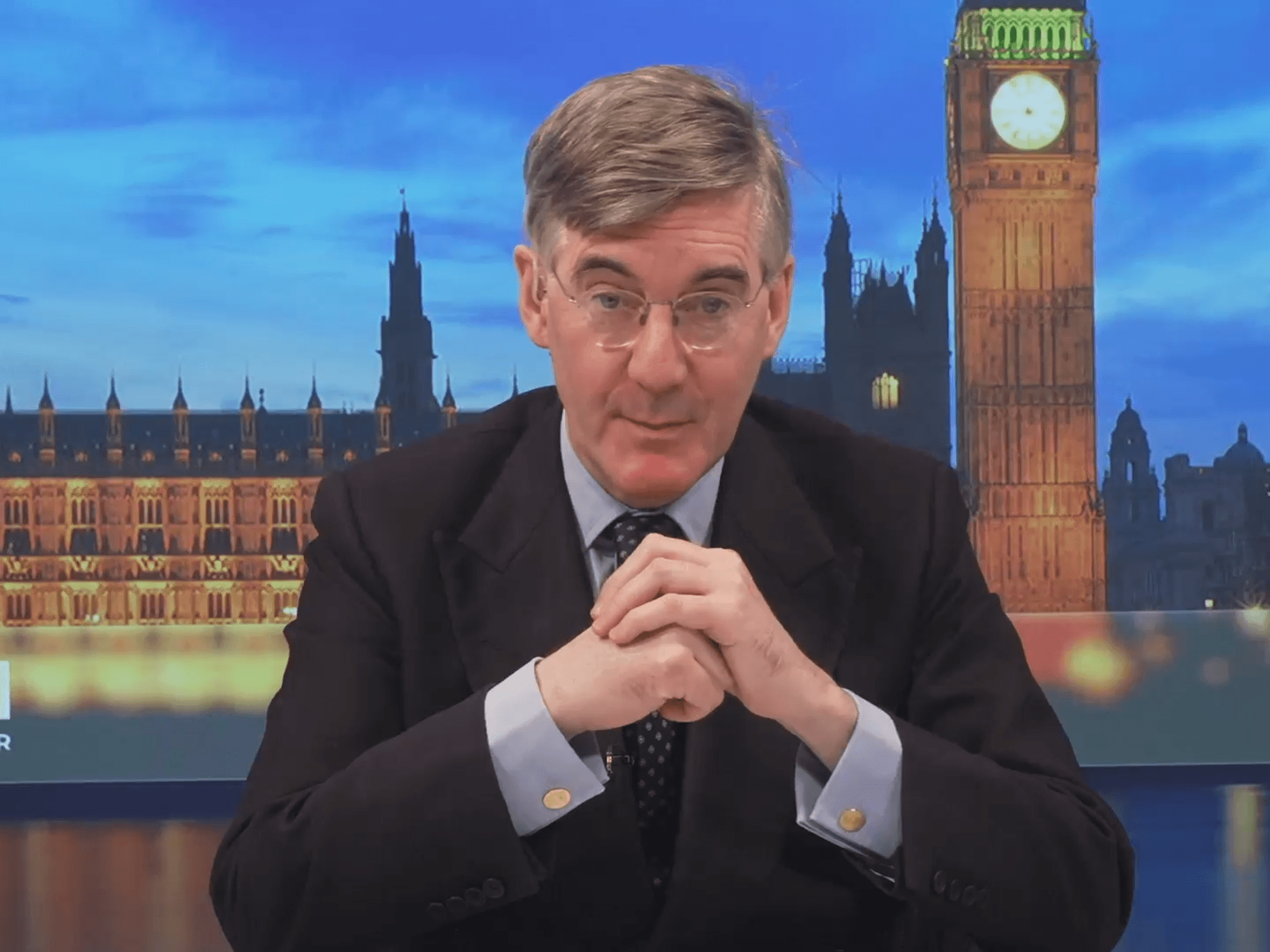My hometown was ground zero. They called us closet racists. Now the genie is out of the bottle - Paul Embery

Martin Daubney in tense clash with Labour councillor over Epping asylum protests: ‘Total myth!’ |
GB
When legitimate concerns over immigration are ignored by our elected leaders, people look elsewhere
Don't Miss
Most Read
Trending on GB News
I know Epping. Situated in the borderlands between London and Essex, it is a short ride from Dagenham, the place where I grew up.
Somewhat unlike Dagenham, however, Epping is a fairly affluent and sedate old market town.
I also know Diss, another attractive place just a few miles from my current home in East Anglia.
In the past few days, both these towns – usually the type of places where you go for a nice lunch or a round of golf – have been thrust into the national spotlight, as demonstrators took to local streets in opposition to decisions to house large numbers of young male asylum seekers in nearby hotels.
Footage of the protests showed the level of anger. Certain unsavoury characters turned up at both events, and some in Epping inexcusably turned to violence. But most demonstrators stayed within the law and made their case robustly but peaceably.
What I found striking about both protests was that these were not the sort of towns or people that one would usually associate with rebellion or social discord.
So it is a measure of how deep public resentment is now running over the immigration crisis – and, in particular, the requisitioning of hotels on a vast scale and at considerable public cost – that places like these now find themselves centre stage in the debate.
Many protestors were parents worried about the safety of their children, particularly their daughters.
 My hometown was ground zero. They called us closet racists. Now the genie is out of the bottle - Paul Embery |
My hometown was ground zero. They called us closet racists. Now the genie is out of the bottle - Paul Embery | Getty Images/PA/Getty Images
While it is important not to tar all asylum seekers with the same brush – many will be decent people simply seeking a better life for themselves – data published recently and widely reported in the media shows that foreign nationals are far more likely than native Britons to commit sex crimes, with Afghanistan, a country from which many have arrived in the small boats, topping the table for the total conviction rate per head of the population for each nationality. So the concerns of the protestors are not irrational; they are grounded entirely in reality.
For at least two decades, our political class has been playing with fire over the issue of immigration, repeatedly promising to get numbers down but invariably failing to do so. And now a storm is gathering.
I began warning about the impact of high immigration numbers on working-class communities after witnessing, in the first decade of this century, the disorientation and bewilderment caused to my fellow citizens in Dagenham by the effects of the new global market, especially the rapid and large-scale deindustrialisation and demographic change that began to take hold in their community.
The liberal globalists who ran things arrogantly dismissed the inevitable disquiet aired in Dagenham and other places experiencing a similar phenomenon as the intolerant reaction of closet racists and bigots.
They were profoundly wrong. People were uneasy because their sense of order, and not their sense of race, had been violated.
LATEST MEMBERSHIP DEVELOPMENTS
- EXPOSED: Keir Starmer rushing through winner-takes-all EU deal that hands Brussels control over WHOLE of UK
- With radical Islam's hostile takeover near completion, white Christians need not apply - Ann Widdecombe
- We are one push away from rising up. But what if the first shot has already been fired? - Kelvin MacKenzie
The contempt shown by establishment politicians to people in Dagenham resulted in the British National Party achieving its best ever result in local government elections – securing 12 seats and becoming the official opposition on the local council.
That’s what happens when legitimate concerns over immigration are ignored by mainstream parties. People look elsewhere – including to hardliners and extremists – for representation. It is a lesson that so many among the political elites in Britain stubbornly refuse to learn.
Sir Keir Starmer says he recognises public concern over immigration and has pledged to fix the broken system. He doesn’t have long.
Voters can see that the Government has made nothing like sufficient progress on the issue since it came to power.
In fact, record numbers are now arriving on the small boats – and patience throughout the country is demonstrably wearing thin.
And Starmer's recent recantation of his own warning that, without action, Britain risks becoming an "island of strangers" will leave many wondering just how sincere he is in his promise to tackle the problem.
The tragedy is that it didn’t have to be this way. If successive governments had run a sensible immigration policy, ensuring numbers were modest and manageable and asylum claims were dealt with swiftly and competently, the issue would not be dominating our national discourse in the way it is, and our communities would be more harmonious than they are.
As a nation, we had moved on from the dark days of the 1970s, when the National Front was busy standing in elections and holding intimidatory marches in areas with large ethnic minority populations.
But then someone decided it was a good idea to fling open the borders in the name of improved GDP and cultural enrichment, and now we have set ourselves back half a century.
Worse, hardly anyone in power knows how to get the genie back into the bottle. Indeed, I suspect that some among them have no desire to do so.
In the end, the ballot box is a pressure relief valve. When the valve becomes faulty –in other words, when politicians do the opposite of what the public consistently demands – the pressure doesn’t go away; it simply breaks out elsewhere.
I desperately hope that the government gets to grips with the situation. If it doesn’t, we can reasonably predict that the scenes that played out in Epping and Diss will be repeated elsewhere.
These are indeed troubling times.
More From GB News










